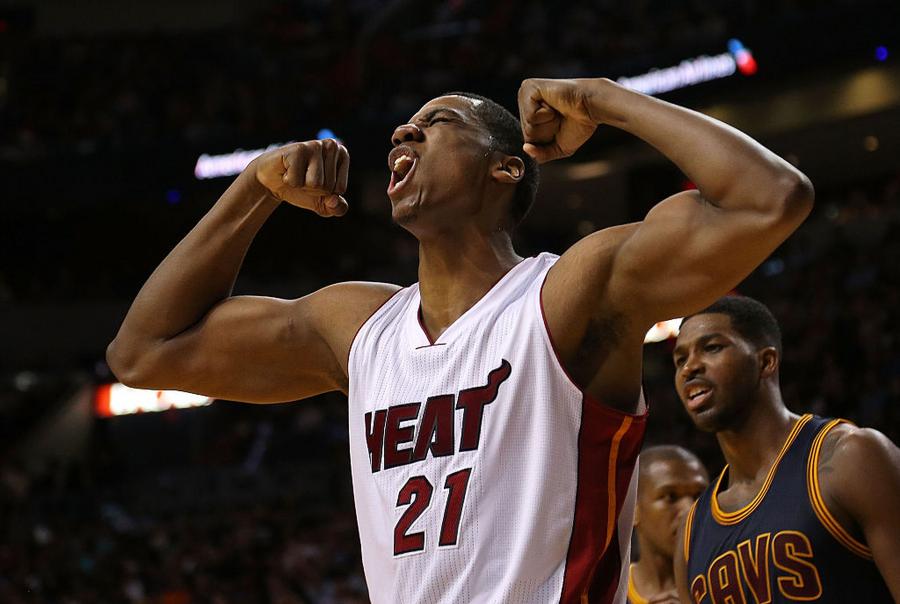What is Hassan Whiteside's net worth and salary?
Hassan Whiteside is retired American professional basketball player who has a net worth of $40 million.
Hassan Niam Whiteside's NBA career has been marked by explosive peaks and puzzling valleys, embodying both the potential and limitations of traditional centers in modern basketball. After being selected 33rd overall by the Sacramento Kings in 2010, Whiteside's breakthrough didn't come until 2014 with the Miami Heat, where he transformed from a G-League player into one of the NBA's premier shot-blockers and rebounders. Known for his imposing 7'0″ frame and 7'7″ wingspan, Whiteside led the NBA in blocks (2016) and rebounds (2020), earning a massive contract with Miami before his production and playing time gradually declined. His career has been characterized by impressive statistical outputs often overshadowed by questions about his impact on team success and his approach to the game.
Career Earnings & Contracts
During his NBA career, Hassan earned $105 million in total salary. The majority of his earnings came from a 4-year $98 million contract signed with the Heat in 2016.
Miami Mansion
In 2016, Hassan paid $7.3 million for a mansion in Miami Beach, Florida. He listed this home for sale for the first time in April 2022 for $23 million. He re-listed the home in January 2025 for $19.5 million. Here is a video tour:

Getty Images
Early Years and Development
Born on June 13, 1989, in Gastonia, North Carolina, Whiteside played one season of college basketball at Marshall University, where he led the nation in blocked shots with 182, setting a Conference USA record. Despite his raw talent, his draft stock was limited by concerns about his maturity and basketball IQ. After being selected by the Kings, Whiteside spent several years bouncing between the NBA D-League (now G-League) and professional leagues in Lebanon and China, struggling to find his footing in professional basketball.
Miami Heat Breakthrough
Whiteside's career trajectory changed dramatically when the Miami Heat signed him in November 2014. Under Erik Spoelstra's guidance, he emerged as one of the NBA's most dominant defensive presences, averaging 11.8 points, 10 rebounds, and 2.6 blocks in just 23.8 minutes per game during his first full season. His breakout 2015-16 campaign saw him lead the league with 3.7 blocks per game, earning him a four-year, $98 million contract. During his prime years with Miami, Whiteside posted several remarkable statistical performances, including a triple-double with blocks and a 30-point, 20-rebound game.
Portland and Utah Years
After leaving Miami in 2019, Whiteside joined the Portland Trail Blazers, where he led the NBA in rebounds per game (13.5) while maintaining his shot-blocking prowess. However, his role began to diminish in subsequent seasons with the Sacramento Kings and Utah Jazz. Despite continuing to post solid per-minute statistics, questions about his defensive awareness, screen-setting, and overall engagement level led to decreased playing time and a reduced market for his services.
Playing Style and Impact
Whiteside's game represents both the traditional virtues and modern limitations of the classic NBA center. His shot-blocking ability, rebounding prowess, and efficient finishing around the rim made him a statistical powerhouse at his peak. However, his reluctance to defend away from the basket, inconsistent effort levels, and limited passing ability often made him a challenging fit in contemporary NBA schemes that demand versatility from big men. His career serves as an interesting case study in the evolution of the center position in basketball, highlighting how traditional big men have had to adapt to changing tactical demands.
Legacy and Career Perspective
While Whiteside's raw statistics suggest a dominant NBA center – career averages of 12.6 points, 10.8 rebounds, and 2.3 blocks per game – his legacy is more complex. He represents a player who mastered certain aspects of traditional center play but struggled to adapt as the NBA moved toward more versatile big men. His career demonstrates both the value of specialized skills and the importance of adaptability in modern professional basketball. Despite never making an All-Star team, Whiteside's shot-blocking ability and rebounding excellence earned him a place among the most statistically productive centers of his era.
/2018/08/Hassan-Whiteside.jpg)
/2014/07/GettyImages-158801532.jpg)
/2025/02/Shelden-Williams.jpg)
/2014/08/GettyImages-53000342.jpg)
/2014/12/GettyImages-51533730.jpg)
/2015/02/GettyImages-588942906.jpg)
/2019/10/denzel-washington-1.jpg)
/2009/11/George-Clooney.jpg)
:strip_exif()/2009/09/P-Diddy.jpg)
/2020/04/Megan-Fox.jpg)
/2009/09/Brad-Pitt.jpg)
/2020/06/taylor.png)
/2019/11/GettyImages-1094653148.jpg)
/2009/09/Jennifer-Aniston.jpg)
/2017/02/GettyImages-528215436.jpg)
/2018/03/GettyImages-821622848.jpg)
:strip_exif()/2015/09/GettyImages-476575299.jpg)
/2018/08/Hassan-Whiteside.jpg)
/2015/02/GettyImages-588942906.jpg)
/2016/06/Hassan-Whiteside.jpg)
/2025/01/Screenshot-2025-01-26-114324.jpg)
/2014/07/GettyImages-158801532.jpg)
/2025/02/Shelden-Williams.jpg)
/2014/08/GettyImages-53000342.jpg)
/2020/02/Angelina-Jolie.png)
/2020/01/lopez3.jpg)
/2019/04/rr.jpg)